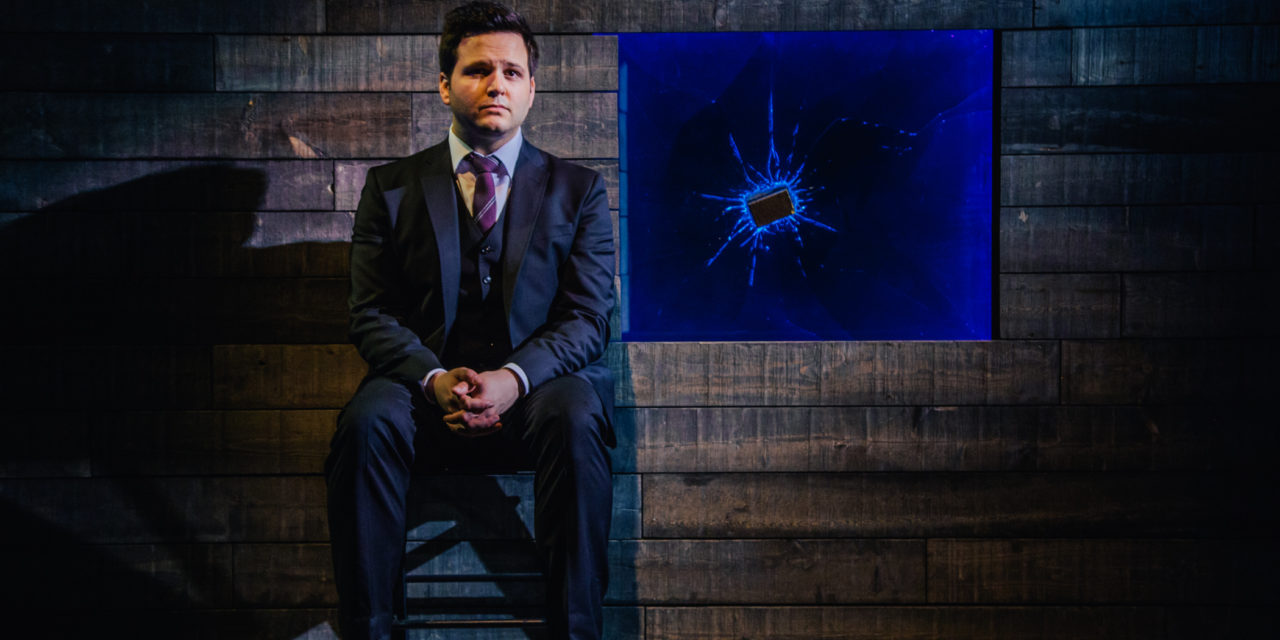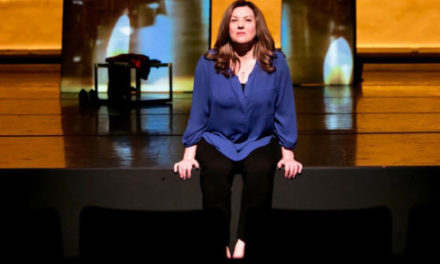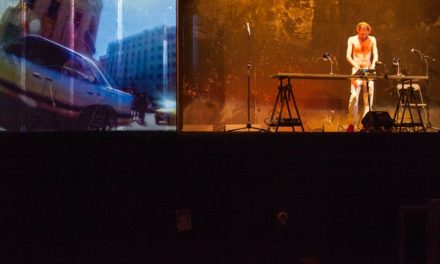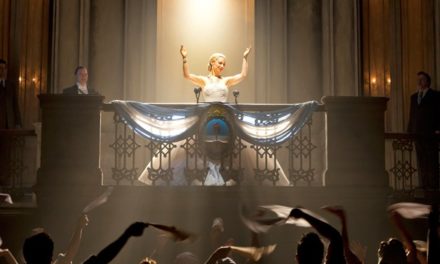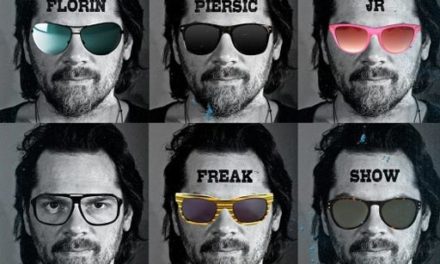Wow.
In & Of Itself, written and performed by Derek DelGaudio for long runs with numerous extensions in Los Angeles and New York, makes clear from the onset that attendees are being asked to go along on a journey. Audience members are instructed to select cards printed with the words “I AM” from a series of possible identity descriptors (I am a Judge, I am a Minimalist, I am a Curiosity, etc.) before entering the theatre. The cards are then collected by the ushers and become part of the performance as they’re placed in a stack on a table onstage. It’s only our choices up there, but wait, aren’t we defined in large part by our choices? In this way, the cards come to somehow function as a mirror, a visual encounter with ourselves and each other—only one of the numerous devices that contribute to DelGaudio’s multidimensional invention.
DelGaudio commands the distinct ability to philosophically comment by means of artful storytelling. Instead of asserting a string of conclusions, he simply reveals an initial prompt. A poignant question, a wisely-chosen anecdote: droplets of innuendo. With the intuition of a natural expedition leader, he doesn’t attempt to live the adventure for you. He guides you to the wild terrain, sweeps away the brush to reveal a lush landscape, and, with a knowing look in his eyes, invites you to explore.
Some attendees, who are unwilling or unprepared to accept the invitation, giggle and snort in the beginning. Their presence is acknowledged and permitted, but it is the journey-goers who reap the transformative reward in the end. This, for me, was the most powerful aspect of the performance: DelGaudio’s gift of encounter with the audience, both collectively and individually. The streams of connection spread out—yes, magically—as our individual encounters are witnessed by each other. There is a voluntary deep intimacy that results from the willingness to have a genuine experience.
“Do you know who I am?”—“What did he see in me that I didn’t show him?”—“What’s left?”—In & Of Itself is splattered with jumping-off points for inquiry, a kind of kaleidoscope that can spin into pinwheels of mixed metaphors yet still manages to stick the landing after every twirl. Not just anyone could pull this off. DelGaudio implicates the conundrum of his own expertise, weaving in comments on his role as “Roulletista”—noting the criminal aspect of impressively performing, of having and delivering such insight.
Concerning criminality? The possibility of danger, he suggests, also holds the possibility of metamorphosis. If “every secret has a unique weight to it,” then what if all it took to be free was a willingness to let go of the weight? The very thing that one longs for is deceptively accessible, like the crux of all spiritual axioms. Timeless truths are timeless truths, but how delightfully presented!
DelGaudio noticeably disregards the obligatory performative effect, and at times almost appears as though forgetting his lines—as though the stories weren’t personal, as though you hadn’t bought a ticket, as though he weren’t tasked with delivering. It works to wear down the suspicion or guardedness that can come with anticipating the how of an illusionist’s tricks. Then, enjoyably, the moments of magic remind you that he’s exactly in control. This choice of approach results in a powerful avalanche effect to the emotional release at the show’s climax.
In & Of Itself is a success on the independent levels of spectacle, storytelling, intelligence, innovation, composition, and emotion, and DelGaudio entwines each of these elements to enhance the impact of the experience as a whole. What a kind offering (and how needed an antidote to these quick-to-spurn days), to create this reminder that our identity is not singular, along with the encouragement to “let the mystery continue a bit longer.”
In & Of Itself
Written & Performed by: Derek DelGaudio
Directed by: Frank Oz
Off-Broadway at the Daryl Roth Theatre, New York, NY
This post was written by the author in their personal capacity.The opinions expressed in this article are the author’s own and do not reflect the view of The Theatre Times, their staff or collaborators.
This post was written by Rachel E. Diken.
The views expressed here belong to the author and do not necessarily reflect our views and opinions.

